Co-Written with Sakshi
1. Check Your Casteist Language For Slurs Against Dalits.
Brahminism is an inhuman, cruel and regressive system whose modus operandi is to deliberately inflict violence on Dalits to maintain the caste hierarchy. This violence not only manifests in physical, sexual, social or economic ways but is also propagated through language. Our language is rife with casteist slurs and connotations that we need to constantly check. Words like ‘kam*na’, ‘Bh*ng’, ‘Cha*aar’, ‘Har*jan’ etc., are used in our everyday conversations. Some of these words are used by us in ignorance but a lot of these words, even when we know are slurs, are continued to be used by us while talking. More than often, these words are slurs because they constantly seek to dehumanize and ostracize Dalits and stereotype them as impure and savage. Words like ‘mahar’ are used to insult people who upper caste people find ‘unclean’ but in doing so, they are deliberately dehumanizing the Mahar community in Maharashtra, to which Babasaheb Ambedkar belonged.
Thus, these slurs are merely not words but carry with them a history of epistemological violence and oppression. Not only should we entirely refrain from using them (yes even in private WhatsApp chats!), we should have uncomfortable conversations around the ethics of using such words with our peers and families who continue to use them out of ignorance or conditioning. Staying silent makes us complicit in casteism.
Here is a Twitter thread by journalist and anti-caste activist Divya Kandukuri explaining casteist slurs in detail.
2. Read And Amplify The Writings of Dalits.
On issues centering caste identities, atrocities and politics—opinions and voices of Dalit people matter more. A question that is often asked by upper-caste people is, why can’t they write or make art on caste? Of course both Dalit and non-Dalit people have the right and the freedom of expression to talk about caste, but do they get the same and equal platforms to be able to talk about it?
When Arundhati Roy wrote the introduction to Annihilation of Caste, it caused a huge furor amongst the Dalit community. Some of the disagreements with her were on her essay’s excessive focus on Gandhi but the larger point that a lot of Dalit activists and academicians were trying to make was that—why wasn’t a Dalit writer given that platform to introduce Annihilation of Caste, and why do already established savarna authors get more precedence? When upper caste people write about caste experiences, we should always question the intent and the consequences of it—are they making money and profit from the work they are publishing, are they occupying spaces and platforms that belong to Dalits in the first place? As readers and also consumers of art and literature we should be mindful of who we choose to read and amplify.
Also read: 7 Anti-Caste Moments Of 2019 That Challenged Casteism In India
3. Ready To Feel Uncomfortable When Having Conversations About Privilege and Social Capital.
It is extremely counter-productive and futile to get defensive when someone asks us to reflect on our privilege and social position. Conversations that involve detailing the historical oppression upper caste communities have perpetrated against Dalits are bound to make us uncomfortable. But these conversations are important for us to understand how systematic caste discrimination and structures of graded inequality operate in our society. It is also extremely inappropriate to expect and ask Dalits to be ‘civil’ while having these conversations with us.
It is extremely counter-productive and futile to get defensive when someone asks us to reflect on our privilege and social position. Conversations that involve detailing the historical oppression upper caste communities have perpetrated against Dalits are bound to make us uncomfortable. But these conversations are important for us to understand how systematic caste discrimination and structures of graded inequality operate in our society.
First of all, if they are expressing their anger and resentment at centuries worth of oppressive practices like untouchability, it is extremely reductive to classify their anger as ‘uncivil’.
Secondly, civility or politics of respectability also come from a place of privilege and it is extremely hypocritical of us to practice tone policing. Often, in university spaces subtle casteism is considered a civil discourse because it is disguised with politeness and polished English words. However, an aggrieved Dalit student fighting back to challenge this subtle or overt casteism whether through anger or politeness is sometimes not considered a civil discourse because of ‘raised voices.’
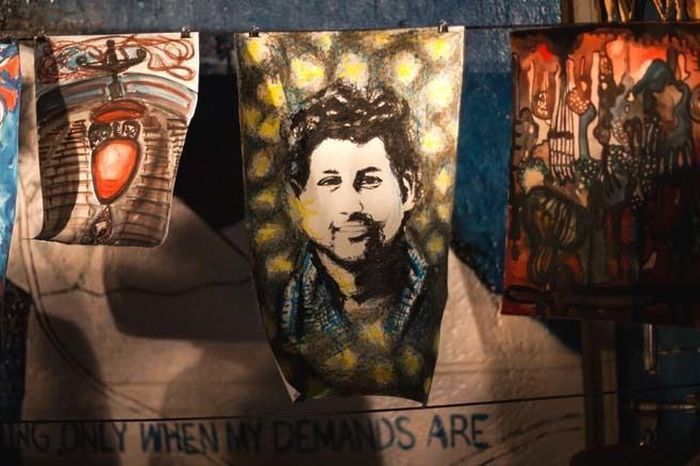
So if upper caste people are unable to engage with these uncomfortable questions through rationality and self reflection, they choose to blame the tone or the method of dissent, thus shrugging off their own responsibility to learn and fight against Brahmanism. It’s not our place to tell someone to tone it down when they are talking about lived experiences of systematic caste discrimination. At the same time, as allies, it’s also important to keep a check that we do not individualise the social problem of caste by limiting our political assertion to only calling out privilege of individuals without fighting for structural reform. Often, in order to feel good about themselves, allies indulge in tokenistic gestures that seldom translate to long term advocacy on ground.
Also read: Too Radical For Savarnas: Anti-Caste Feminist Legislation By Dalit Women &…
4. Understand The History And The Reality Of Caste-Based Reservations.
Recently the Supreme Court opined that reservation lists need to be revised so that the reservation benefits are not usurped ‘by those who have already obtained benefits’. This statement echoes our larger commonsensical understanding that reservations are only meant to economically uplift people from the SC, ST and OBC communities whereas reservations are meant to be policies of affirmative action. Caste and class need to be seen in relation with each other.
Recently the Supreme Court opined that reservation lists need to be revised so that the reservation benefits are not usurped ‘by those who have already obtained benefits’. This statement echoes our larger commonsensical understanding that reservations are only meant to economically uplift people from the SC, ST and OBC communities whereas reservations are meant to be policies of affirmative action. Caste and class need to be seen in relation with each other.
In the Indian context, we cannot separate the two. Because of social discrimination the marginalised sections have been pushed into situations of economic deprivation but this does not mean that the so-called affluent and economically advanced classes in SCs and STs do not face caste discrimination anymore. If reservations have really served their purpose, as has been claimed by many, then why do we not see adequate representation of SCs and STs in academia, judiciary, civil services, media houses, Bollywood and all, other institutions of this country?
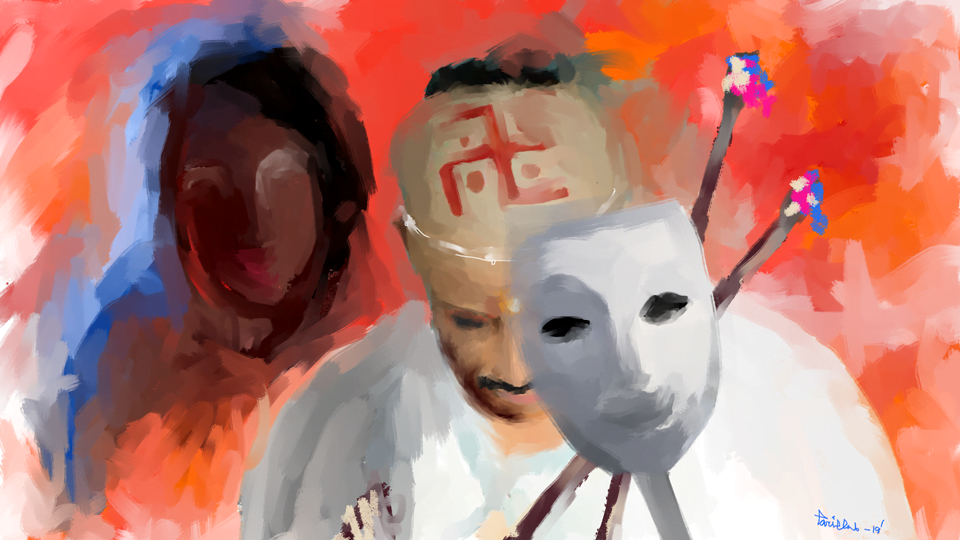
Neither has the hegemony of Brahmins who hold the most power vanished from public institutions and nor has caste based discrimination ceased to exist in our society. Thus, caste identity is above financial status. It is intrinsically connected to the concept of purity and pollution that the culture of Hinduism till date propagates.
5. Mind Casteism Around You—In Your Houses, Schools, Universities, Workspace etc.
If we actually claim to be allies to Dalits, it’s insufficient for us to just not be casteist, we also have to be anti-caste simultaneously. What this means is we have to actively try dismantling caste practices around us. We can start by trying to educate our families in Hindu households who practice casteist rituals or wear markers of caste like the janeu on their body. We should be mindful of how Dalit students are treated by professors and students in campus spaces and not tolerate them being mocked or spoken over.
While social media has democratised learning and simplified complex social concepts for us, but our learning about Brahmanism and the anti-caste movement should not be limited to activist pages. If we are truly committed towards being anti-caste, we should read the original works of Dr. B R Ambedkar, Kancha Illiah Shepherd, Savitri Bai and Jyotiba Phule, etc. Being an anti-caste ally means we have to put in our work to truly educate ourselves and others around us and not always depend on the labour of Dalit people to call us out or educate us. This is a good starting point to read up on anti-caste literature.
Sakshi is a Dalit, non-binary, lesbian student looking for a space to belong, who also sometimes writes.
Featured Image Source: The Print
About the author(s)
Imperfect Feminist and Literature Student. Raging to build a kinder world.
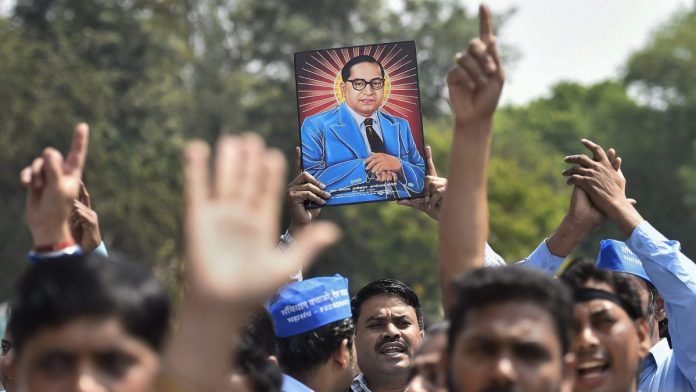
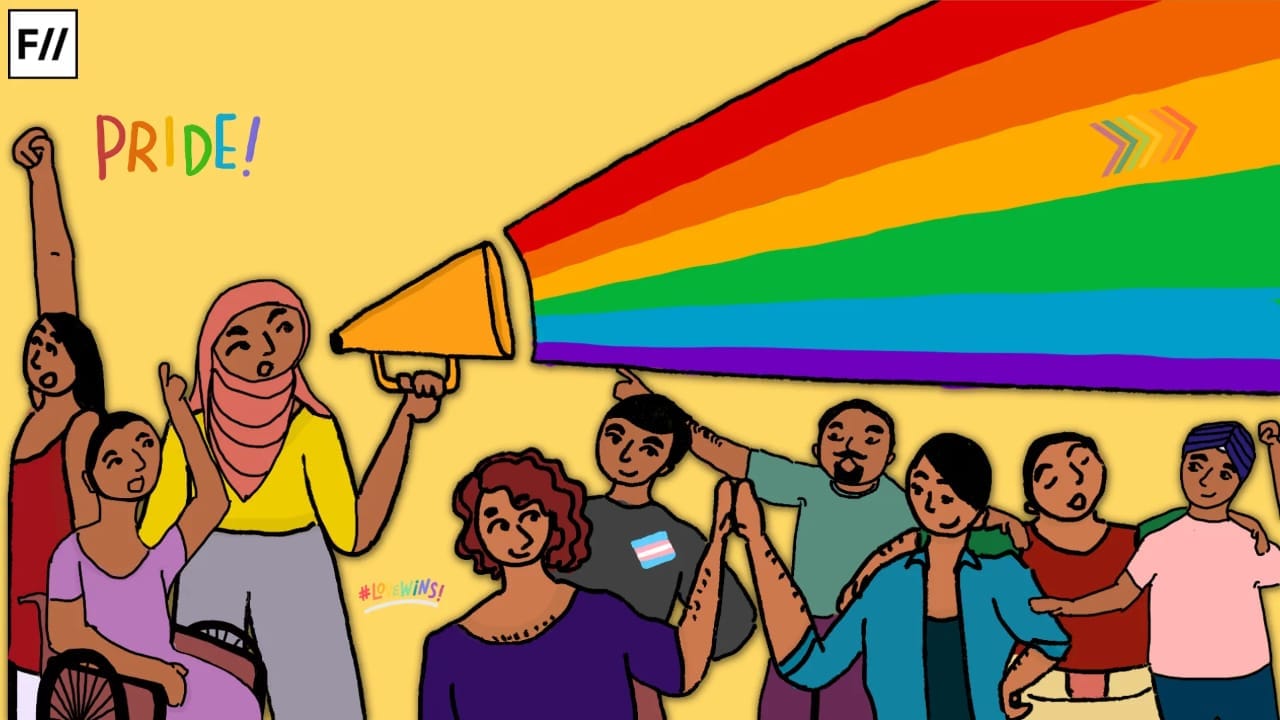

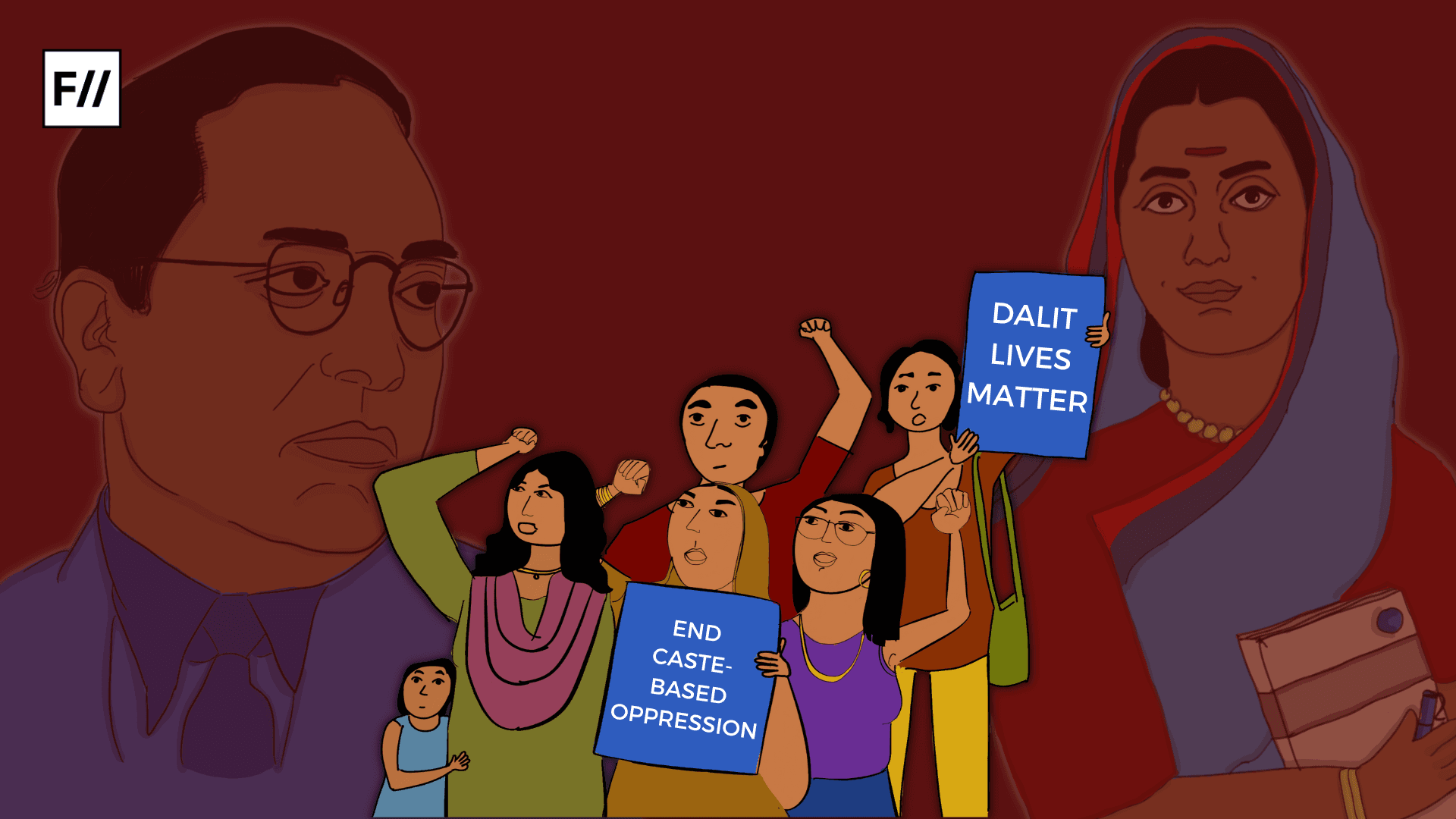

Excellent. But this will decades for the common folk of our country to understand and reciprocate.